The calculus of consequences
What happens when a society suffused with treason and war crimes seeks justice?
Justice is conscience, not a personal conscience but the conscience of the whole of humanity — Aleksandr Solzhenitsyn
Have you ever watched a trial for treason before? I haven’t — and it was something that puzzled me years ago, given how the crime appeared to be relatively commonplace among the corridors of power. Now I know why this was not a feature of civic life: my own understanding of geopolitics was somewhere between superficial and stupefied. Underneath the surface of the nightly news has been an invisible war between shadowy forces, and its duration is a minimum of many decades. Everyone “playing the game” of treason has had to be lulled into believing they were untouchable — right until they aren’t.
The scale of the justice event unfolding around us is hard to internalise. Consider just how many judges, lawyers, doctors, teachers, pharmacists, nurses, accountants, politicians, councillors, bankers, scientists, presenters, sportspeople, journalists, academics, policemen, bailiffs, executives, clergy, etc. are involved in corruption, genocide, blackmail, sedition, paedophilia, fraud, or trafficking. It is somewhere between “lots and lots” and “lots and lots and lots and lots” — the exact number is less important than the paradigm change in accountability. I am still coming to terms at an emotional and intellectual level with the magnitude of the unprecedented purge of criminals.
It is not my place to decide what punishments are appropriate for these crimes, as I am not a trained advocate. I am not an expert in law, be it military nor criminal, so I cannot comment on the right procedures or tariffs. Moral philosophy is but an amateur hobby, so you will have to look elsewhere for such insight. That said, I am a professional at managing risk, albeit in technical systems, and thinking about complex problems. The kind of language and thinking I picked up in other domains can be combined with ethical concepts, to offer a framework to see why some seemingly harsh things may have to happen for civilisation to survive, and survivors to heal.
The challenge is that what needs to be done in order for society to recover, and have a hope of lasting peace, may not be for the squeamish. The long run is dominated by “ruin risks” at the collective level, not the rights or wrongs of personal punishment. Your or my window of respectable acts doesn’t define what is thinkable or righteous in military terms. A spiritual war cannot be seen as simply the aggregation of personal relationships and acts between accuser and accused. We are ending an age of deceit, and establishing a fully renewed moral and legal order — freed from debt slavery and human trafficking. That is a foundationally greater task than seeking justice for individual crimes.
Paradoxically, restoring individual liberty for all demands a collective perspective, albeit not a collectivist one. What needs to be done to restore harmony and make space for peace may even appal us at a personal and emotional level. Satanists actively celebrate the use of depraved methods of attack. This means we are caught in the kind of trap that resembles one of the “Saw” horror movies. There is no move that avoids bleeding. In order to save the vital organs of the whole, you are forced to sacrifice valued parts. If you evade immediate pain by failing to lose the odd trapped limb, then the future may perish. There is no avoiding the gruesome consequences of the devious predicament we have been snared by.
Our instincts and hopes at the individual level — that each criminal may be redeemed or rehabilitated in some way — can be at odds with both the facts of their nature, and the hazards of laxness in meting out justice. There is an indirect impact of punishment of criminals onto their family, friends, and colleagues. What may be compassionate at the individual level might be leaving untreated cancer at the collective. A temporary succour to the conscience by letting emotions rule, and avoiding severe punishment, could be at the cost of relapse into hideous reprisals and the failure of peace to retain its hold for long. The error is asymmetric: a small compromise on justice now can have a terrible cost to future generations, whereas a lack of mercy does not.
A “calculus of consequences” recognises that there are principles in play, as well as practicalities, and these may be in tension. The outcome of following one principle rigidly can be to violate some more cherished principle. Some of these principles are inviolable and non-negotiable, such as the right to a fair trial, confront your accuser, and have an opportunity to defend yourself. Others may be subject to compromise, being more like policies, such as giving the benefit of the doubt, or offering a second chance. Many will be in conflict, such as the desire to keep families together, yet the need to deport violent enemy combatants who have arrived illegally. The righteous deed means approaching this tangle of coupled outcomes and identifying what has primacy.
An action that may be a virtue at one scale, such as offering mercy to a murderer for example, may be a vice at another, whereby any recidivism is collective suicide. If you are easy on one traitor, but vengeful to another who becomes a martyr, that inconsistency itself has delegitimised the justice process, as it is no longer blind and equitable. In response, it may be preferable to adopt a ruthless application of life imprisonment or execution to all convicted traitors and war criminals. This takes away issues of tariff consistency and consideration, allowing victims safety in knowing they will never again meet their persecutor. Death may appear to be unnecessarily brutish, yet it is the only pragmatic way of confronting treason in the long run.
Capital punishment is final, and prevents any chance of ugly street justice, or the temptation for guards to become populist heroes by terminating despised prisoners. That said, I have personally been opposed to the death penalty in ordinary civilian justice as it is too open to abuse, often becoming a weapon of repression in the hands of the corrupt. Even if we look beyond the karmic matter of taking another’s life, the track record is too poor for my liking. No single killer poses an existential threat to society at large, no matter how sick. The total population of murderers is sufficiently small that long prison sentences are a viable option, both in terms of cost, and the risk to the gaolers.
Execution brings a dark energy to bear onto the executioner, which seeps into society at large. Adopting a bloodthirsty attitude is not healthy. Yet the same logic does not apply to all crimes, and some are deservedly capital crimes, despite these costs. Treason, especially when in contravention of a voluntary oath of office, has a deadly and corrosive effect that can cause the collapse of trusted institutions. When it opens the door to war crimes, we suffer widespread death and destruction. When those are at scale, it poses a threat that could wipe out entire countries and opens the door to genocide and enslavement. If there is single opportunity to undo centuries of oppression and infiltration, then we have to seize it — and do whatever is necessary, however unpleasant.
As a form of institutionalised crime by the most powerful, the guards of traitors face endless danger from any remaining accomplices. A repeat of the crime risks civil war, an unaffordable prospect. For society to heal, the perpetrator has to be gone. Treason is of a categorically different (and worse) nature to ‘ordinary’ murder, and the consequences ought to reflect this. Some weapons can destroy worlds, and their development and use is so horrendous that only death is the appropriate response. Anything short is beyond reckless, and places no value on life itself; the failure to end the life of the criminal is itself a crime, making you an accomplice and accessory to any future loss of life from the same heinous act.
All management decisions in life are tradeoffs of benefit, cost, and risk — with no exceptions. A humanitarian might wish for traitors to be imprisoned rather than hung, but that aspiration has to be weighed up against the consequences. How many productive lives should be dedicated to the care of captives who would not hesitate to harm us if released? How many such officers should be sacrificed (and their families bereaved) as they face reprisals for their work? How many more crimes should we tolerate that are organised by those behind bars? What is the acceptable danger of the prisoner becoming a focal point for an uprising or revolt? How many lives should be put at risk if the crime itself is not purged from society via emphatic deterrence?
When there are millions of criminals, many as enemy combatants rejecting all norms of war, all at once committing the most serious of crimes, then you need to adjust your perspective. The practicalities of survival begin to overwhelm the principles of reprisal. We might see the scale matter at three scopes: the will of God, a military general, and the gentle citizen. The last of these might view the public hanging of traitors as yet more barbarity fuelling the cycle of violence. The general seeks the efficient implementation of the protocols of crime and punishment in accordance with accepted law. The godly may instead send rebuke to cowards who fail to prosecute fully and protect the innocent who remain, instead permitting recidivism of the convicted, and repetition of the crime.
When you send a doctor to prison for life for injecting children with poison, then you are potentially causing the loss of a parent to his or her offspring, as well as a spouse, and the removal of a community volunteer. The crime is real, the harm is done, the punishment is deserved. The gentle citizen may wince at the grief inflicted on those who are collateral damage to the punishment of the crime. The general is relieved that the population are protected from any further assault, even if some suffer. The godly may hope those bystanders so affected become ambassadors for spiritual enlightenment and cultural change, so the crime has positive meaning in their dislocated lives. What is ‘moral’ depends on how close we zoom in or out. The Biblical wrath may be an affront to the aesthetic of the gentle, but that doesn’t make it wrong.
These matters become especially contentious when war is conducted via subversive methods, using engineered migrations of foreign cultures, genetic targeting of death and infertility, and trashing of indigenous values and legal systems. The whole thing takes an even greater weight when we hear of the alleged crimes that the public will have to confront. Babies being raped as playthings. Girls with amputated limbs as sex toys. Cannibalism, including of live victims. Extreme torture using gruesome tools. Genetic mutilation of the young. Mass poisoning via foods and drugs. Engineered wars for profit. Vast trafficking of children for sex. Forced transgenderism. Human sacrifice rituals. It is all disgusting and depraved.
What is coming out of the shadows exceeds the worst of Stalin, Mao, and Hitler. Transhumanism is the extinction of the human species, and the extinguishment of our essence. Genetically engineering new lifeforms is despicable in the suffering it creates. Playing God with life itself represents the perversion of everything holy and everyone divine. The more you learn about nanobots, smart dust, optogenetics, neuroweapons, genetic editing, quantum dots, synthetic biology, graphene goo, autonomous weapons, AI mind control, brain-computer interfaces, and biometric surveillance, the worse it gets.
The abuse of these technologies as weapons of mass gang stalking and mind rape has to be emphatically rejected, and death for those who dabble is the only meaningful way of expressing the taboo. Yet stopping the criminals isn’t the end of the matter. At some point, we need to roll back the nightmare, and restore civilisation to an earlier point before it became despoiled. Where do we draw this line in the sand? Some issues are fairly simple to resolve: remove the poisons from our food, restore constitutional law, and retune the frequencies in our environment. Others are harder, as they now represent ingrained norms of sexual conduct, mass entertainment, and self-medication.
The really contentious part is who we have become as nations. America has a melting pot culture made of a dozen different primary sub-cultures, some of which are barely on speaking terms, but with a vague shared loyalty to the rule of law, civil rights, technological progress, economic liberty, and cultural prowess. Ejecting those who have come to cause harm or seek undeserved charity is now widely accepted. The truly indigenous population was genocided a long time ago, and isn’t a reversible prospect. Deportation of recent invaders works in this context, in order to conserve the essential culture of freedom. That is because lawful assimilation is fully established, and many generations have passed since that process of integration began.
Meanwhile, we can see in countries like Ireland a shockingly swift displacement of the demographic, and extreme repression during Covid lockdowns. Mass deportation of de facto invaders seems the only way forward. In my own homeland of Britain, there are pockets openly advocating for legal systems alien to our own, which is textbook sedition, and cannot be tolerated forever. It is becoming increasingly hard to discern any remnant of our common law and cohesive ethic heritage in many towns and cities. Acts of treason in establishing excessively free movement of people, without any intention of integration, now have consequences that are nightmarish to confront.
I grew up next to Heathrow airport with Syrian, Pakistani, French, Irish, and Scottish neighbours, yet the community was essentially directed towards a shared international culture. Multi-culturalism seemed to be broadly working, albeit with patchy struggles. That is no longer true: an alien Globalist culture is rapidly displacing Englishness, and it is scary. Parts of Britain are now so foreign to one another that they are no longer recognisably joined as a single entity and endeavour. There have been a few moments on underground trains far outside of central London when I no longer feel I am in my country of birth, and that’s problematic.
Displacement of established culture in order to erase it is treason, and you cannot pick and choose which kinds of treason to confront, prosecute, and remedy. The extreme conundrum is that the shape of the demographic is now profoundly altered: my own daughters exist partly due to the mixing that was promoted in the 1990s following the collapse of the Soviet empire. The impact of revealing mass treason, ethic genocide, and child trafficking is not evenly spread, neither in terms of victims, nor perpetrators. There are questions of who really truly belongs where, and what is ultimately a viable society after a mass treason event that exposes covert war on the original population.
I never expected to see this cultural conflict arrive in my lifetime, but treachery crimes have epic aftereffects. This is so much bigger than I had ever conceived of —nothing like arresting a few politicians, bankers, and industrialists. The consequences of centuries of treason are a “damned if you do, damned if you don’t” conundrum, and the calculation of what is possible, desirable, and sustainable is beyond my own means of analysis. The phrases “nothing can stop what is coming” and “bigger than you can possibly imagine” have taken on a whole new meaning in recent months, and the reality of the consequences of treason has fully presented itself.
The truth will come out about everything that has happened since WW2: endless false flags, media brainwashing, weaponised migration, wars based on lies, withheld technology innovations, targeted ethnic cleansing, vaccine injury of children, knowing infliction of cancer, rigged sports, stolen land, unlawful taxes, corrupt stock markets, stolen pensions, vast human trafficking networks, and much more. A lot of people are going to look at the world their grandparents inhabited, compare it to the state of the country they now see as occupied territory, and wonder why we have no choice in the matter. We have been governed by our enemies, to our detriment.
Tackling this level of treason and war crimes touches every possible aspect of daily life and civil organisation. Rectifying the crimes that have been committed, to the extent that repair is possible, has to be done in its totality; to leave any aspect of the social order untreated is to establish a beachhead for renewed corruption and strife. The breathtaking extremity of what has to be confronted and corrected is essentially defined for us. We might like to elevate our personal qualms and moral quirks above the facts of the situation, but that is solipsistic. Unattainable ends preclude the use of polite means.
What needs to be done from a military perspective may be abhorrent to the civilian mindset that has yet to internalise the effects of treason in the long run. What may be the most inviolable principles to us personally may have unacceptable consequences when viewed from the highest perspective. That is why the generals are paid to be godly, not gentle, and for a good reason. When the thinkable is suicidal, we have to do the unthinkable, no matter how difficult or detested. That is not a choice: it is the decided for us by the calculus of consequences.


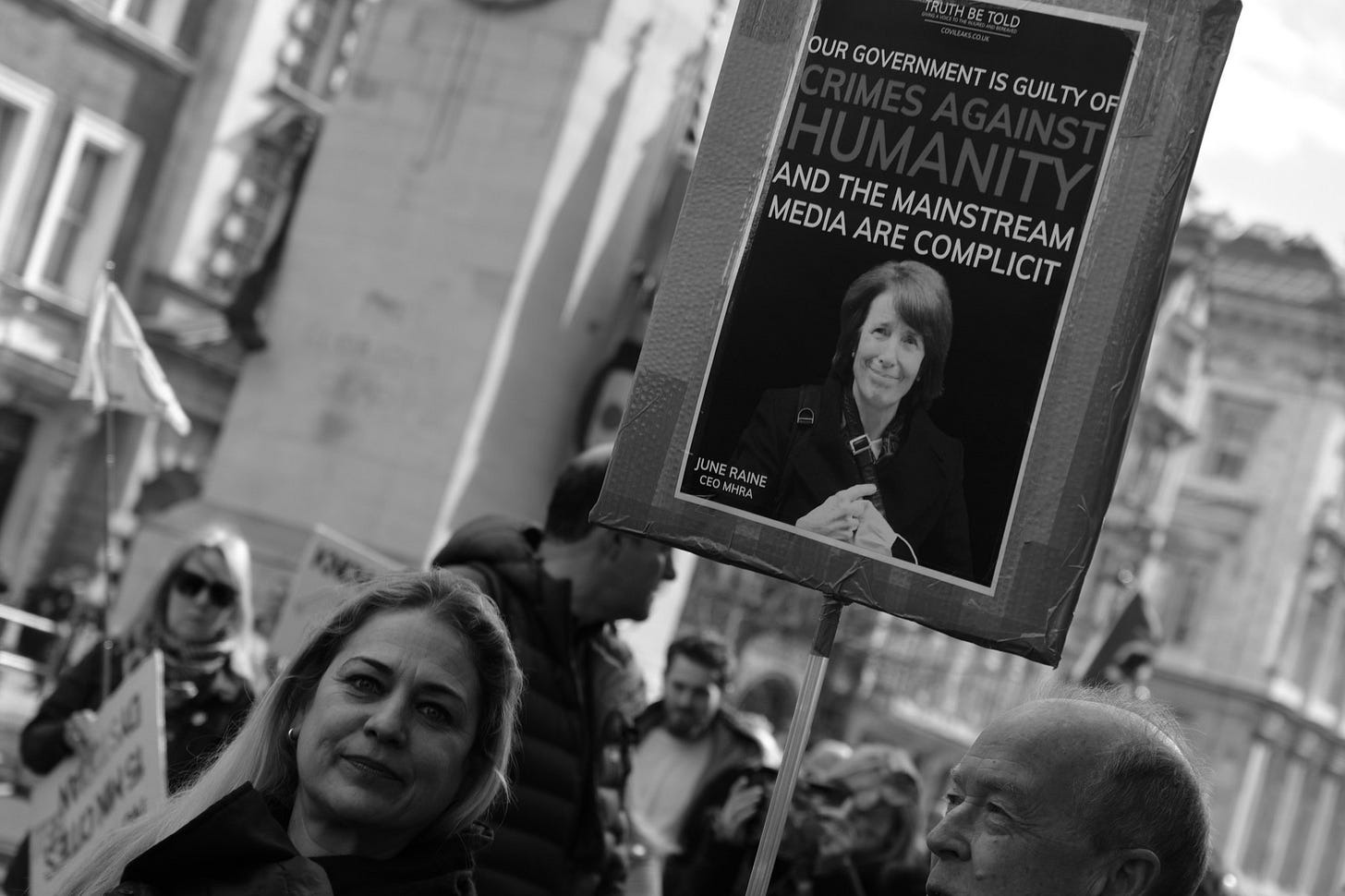
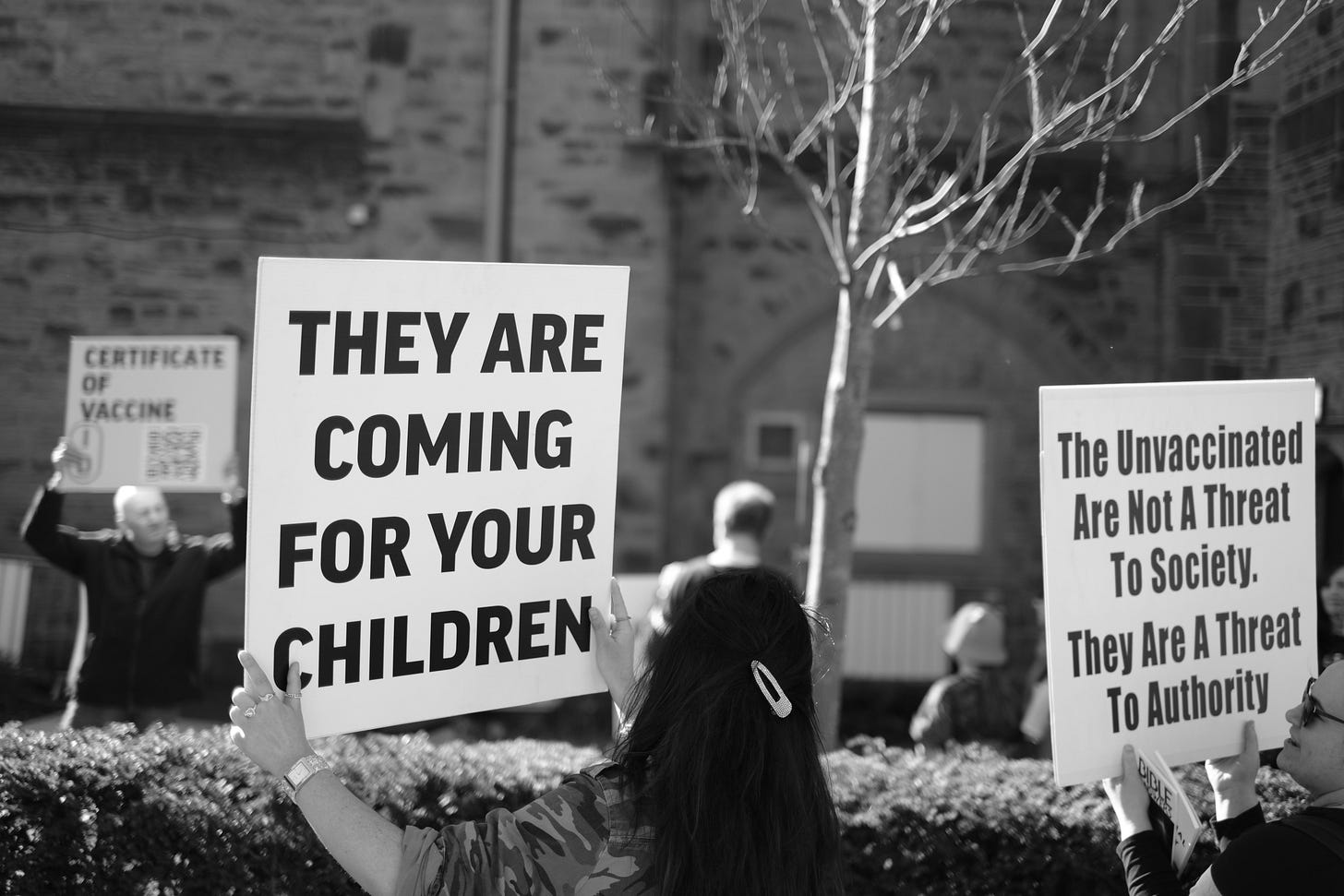
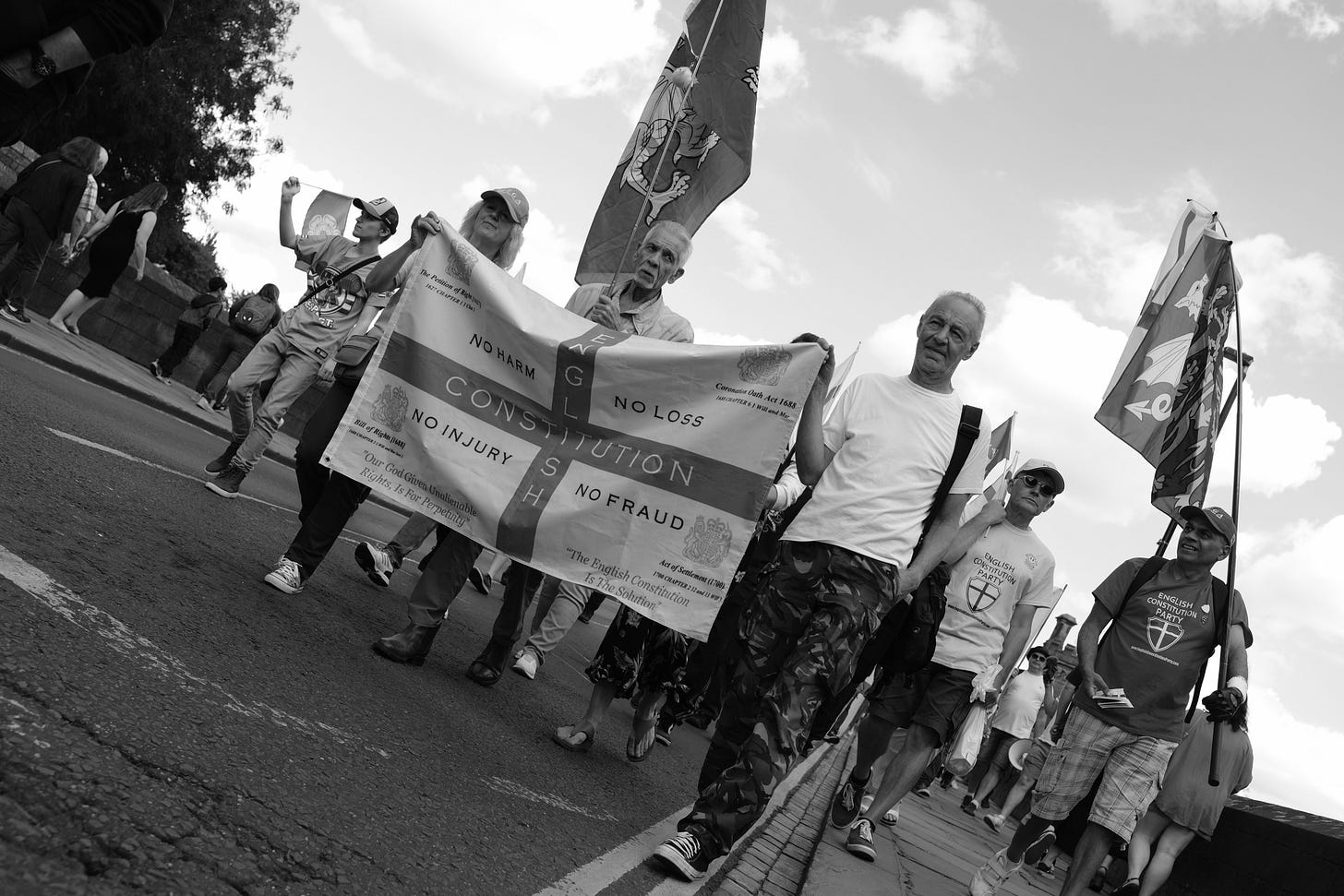

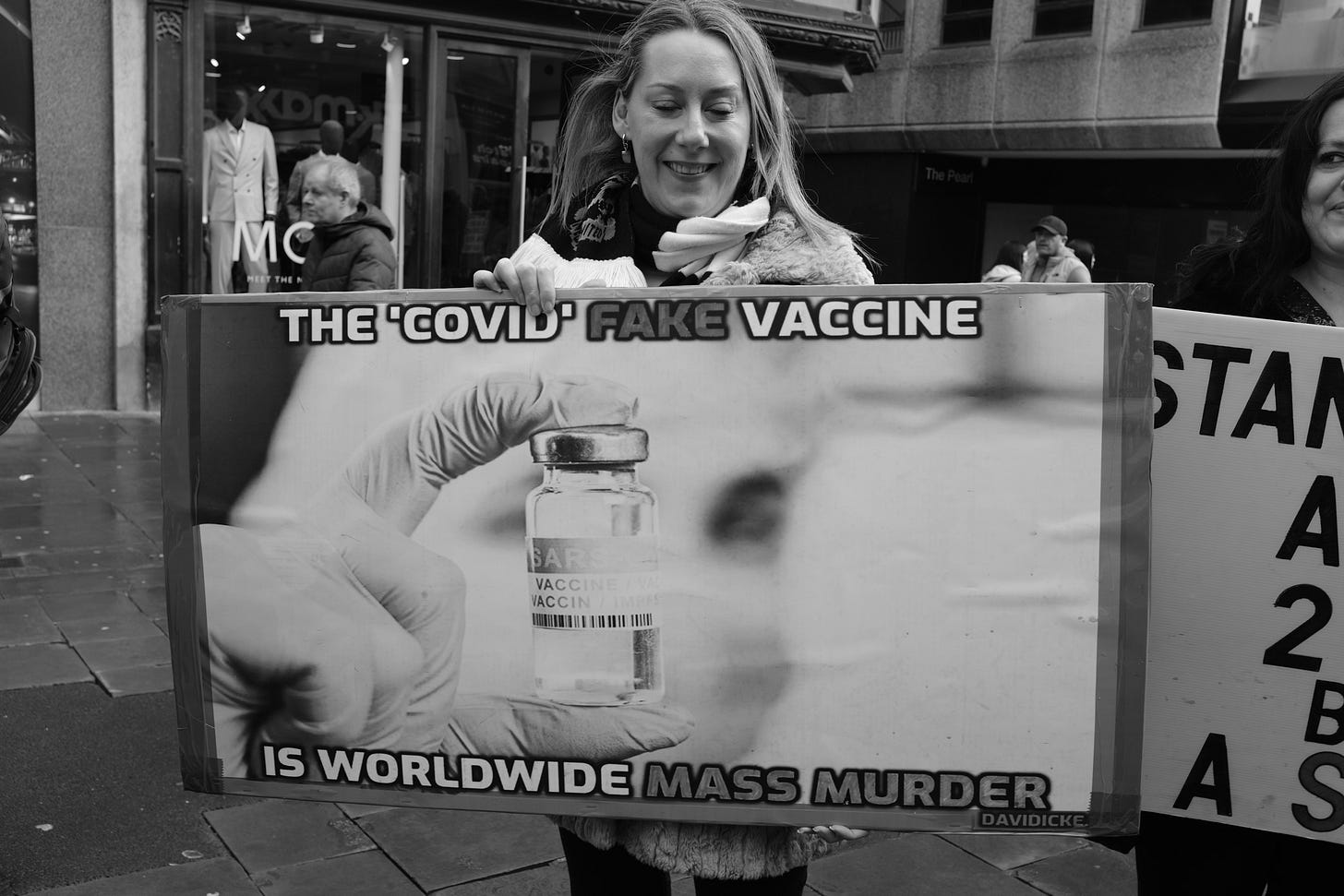
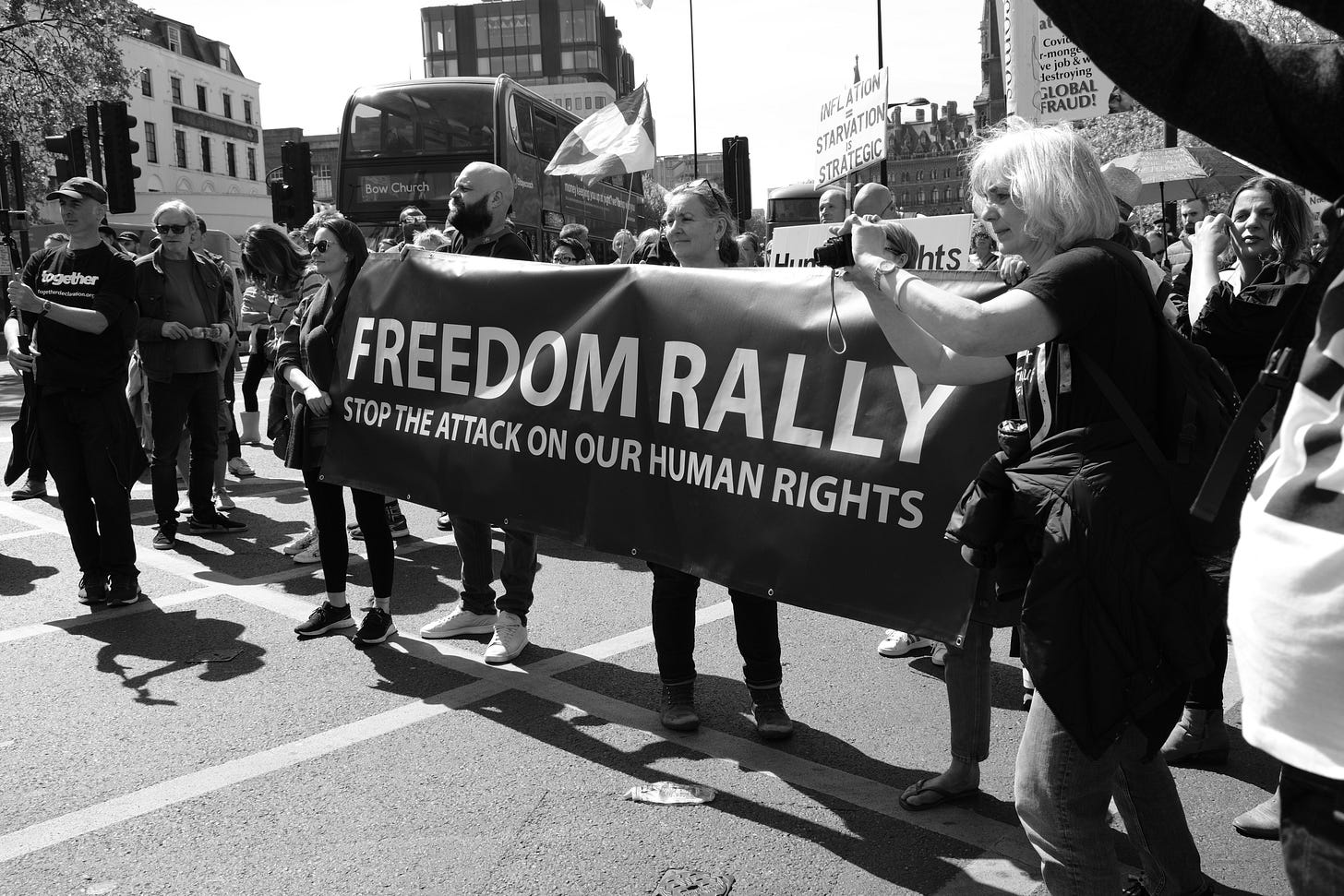
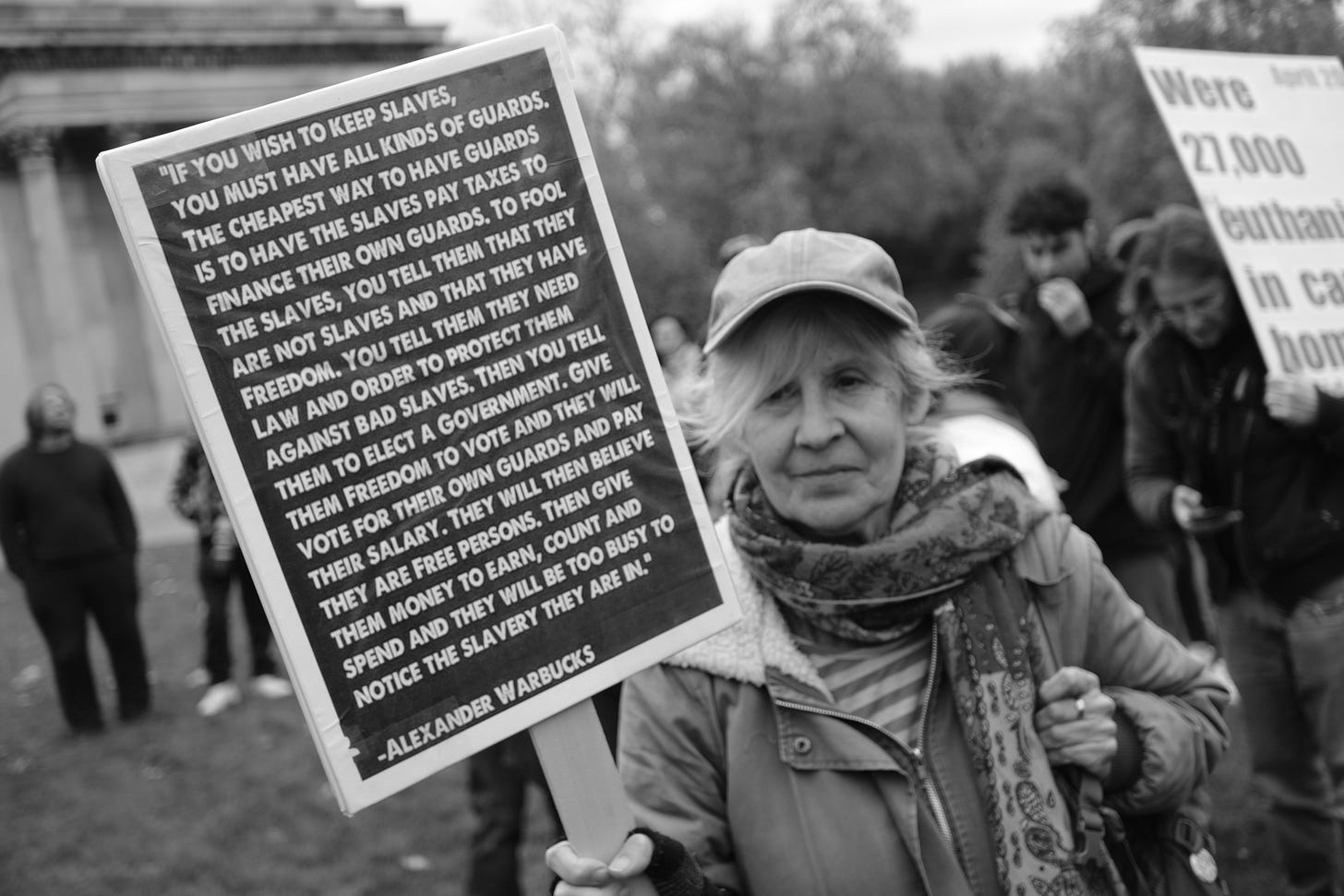
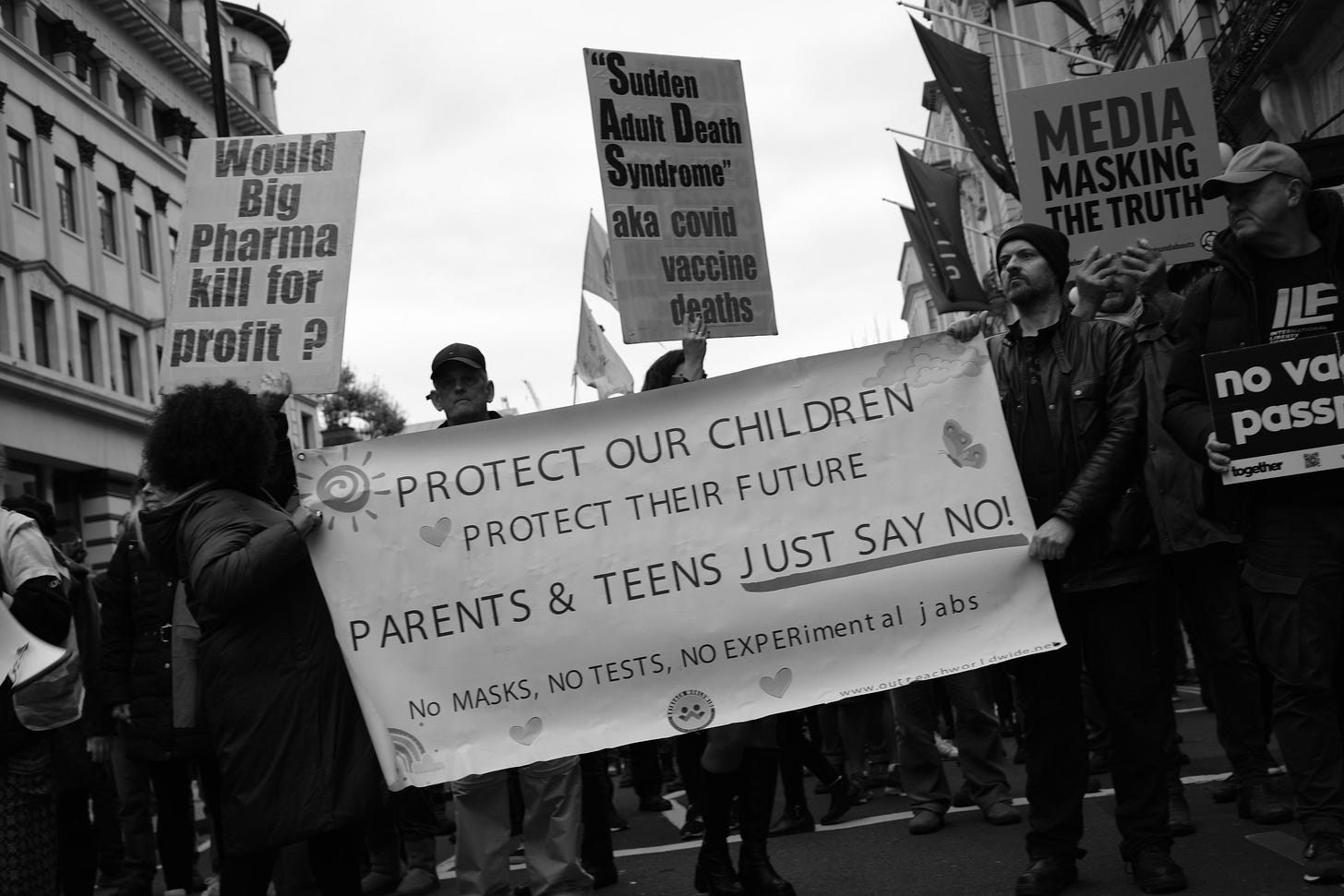


So much truth in this, especially the emphasis on the ethical dilemmas racing towards us as this ‘great awakening’ process accelerates and begins to expose the genuine rot beneath the globalist public facade. But in another sense there is nothing new here: for at least a hundred generations human lives have been shunted and manipulated by organised crime. The qualitative difference is negligible- it is really only a matter of scale.
So yes; “…. restoring individual liberty for all demands a collective perspective, albeit not a collectivist one. “ - but there is no such thing as a collective perspective. All perspectives, by definition, are individual. That is precisely why ‘divide and rule’ is so powerful - and that is how the shadow side of our human nature has brought us to this brink of civilisational collapse. There will never be a ‘collective perspective’ - the best that is even conceivable is collective agreement that certain foundational principles for the very possibility of civilisation are absolutely sacrosanct and inviolable. In fact, we already have that - the United States Constitution is an excellent example of it. So it is not ‘collective perspective’ that is required - or the lack of collective perspective that is the problem. The real problem is related to this: public transparency. For example - if all adult public interactions (financial, legal, etc - not private lives) were as a matter of principle and legal enforcement publicly transparent, the cabal global control since WW2 would have been utterly impossible. The fatal enemy of any web of lies is always the light of cold, hard facts. Cold, hard facts are highly energy efficient - layers of lies and manipulation are utterly inefficient. Here is one example of the way forward: Any public official found to deliberately lie to the public for personal gain has an immediate lifetime ban from office.
I don’t believe we need some novel (and impossible) ‘collective perspective’ for the way out of this mess. We need full exposure of everything. All the crimes - and all the possible information on how we allowed these crimes to happen. Every individual crime should be addressed - and yes, punished - publicly, on an individual level. That is precisely how those crimes have been perpetrated, and a ‘collective’ response to individual actions is a fundamental mistake. On the collective abstract level the shadow is OUR shadow. The only way to rid ourselves of shadow - is light.
I’m just thankful I’m not one of the ones in charge. Way too heavy.